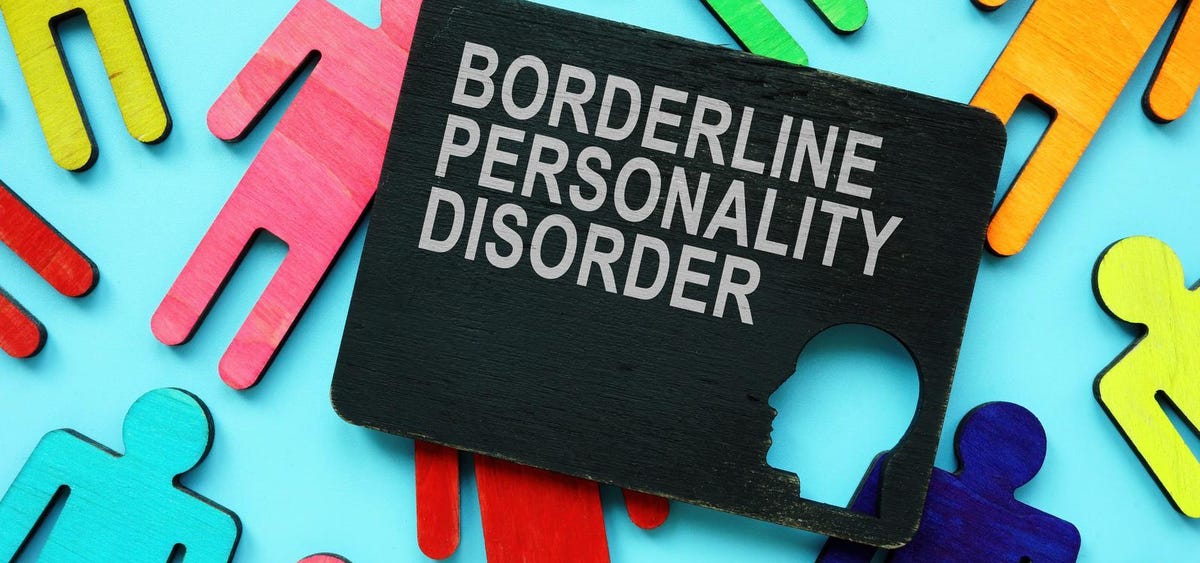Do someone you care about been diagnosed with borderline personality disorder? Caring for a person clinically diagnosed with BPD requires patience, good communication skills, and a clear demarcation of boundaries. Having stated that, are you someone who wishes to assist the person in their emotionally unstable time? In that case, you will first have to understand what this disorder is about and what its symptoms are. Only then you will be able to work out ways to support that person and assist them in a way that is conducive without being overbearing.
As you will scroll down this medical content that we have curated, taking into account a patient’s viewpoints, and under the guidance of medical experts – you will get the required answers. Without waiting any longer –
Table of Contents
What is borderline personality disorder?
For the unversed, borderline personality disorder is a complex personality disorder where the person concerned cannot regulate their emotions in the correct manner. They feel certain emotions strongly and function on an unstable baseline – wherein it is difficult for them to return to a normal baseline after an episode of outburst.
Part of the Cluster B personality disorders involving erratic behaviors has a chronic dysfunctional pattern that is inflexible and leads to them facing social distress. Since these issues emanate from a person’s background, the emotional trauma that they have faced while growing up, or at times unfortunately, due to genetic disorders – therefore, it is only when a person reaches adulthood, do the symptoms manifest.
Medical practitioners state – it is difficult to diagnose, but severe anxiety or depression may be the first instances to recognize this personality disorder.
What are its basic symptoms?
Let’s list some of the ‘most common symptoms that a person diagnosed with borderline personality disorder has –
- A constant fear of abandonment. They are fearful of getting attached and hence either are ‘too clingy’ or detach themselves before somebody can get close to them.
- Intense, unstable relationships. They function in the extremes. A person diagnosed with borderline personality disorder has a tendency to change their views drastically about others. If they are at one point idealizing them, at another, they are immediately devaluing them.
- A reduced sense of self. People who are diagnosed with emotional intensity disorder have a distorted sense of self-image and, in the process, sabotage their own progress (albeit unwantedly).
- Impulsive behavior. They have infrequent episodes of reckless behavior – whether it is their binge-eating habit, erratic schedules, or irrational emotions.
- Constant paranoid thoughts. They are impulsive in nature and have constant thoughts of suicide or self-harm. They are paranoid about bad things happening to them despite everything being normal.
How can you support a person diagnosed with BPD?
“I always feel that people will leave me behind at the end. They are always mad at me. I don’t want to live like this…” – Caroline (name changed), an under-treatment patient with a borderline personality disorder.
Do you hear that? That’s exactly what you will be getting into if you wish to care for a person suffering from emotional fragility disorder.
You already know this was no easy task, but perhaps you could not comprehend that this would get so difficult. That’s fine. We will tell you how to care for such people –
1. Be calm and patient
That is one of the first qualities you will have to ingrain in yourself if you wish to assist or take care of a person suffering from BPD. The concerned parties are already emotionally fragile, and therefore you have to understand their rage, their mood fluctuations, and at times their untoward reactions.
What you have to remember here is – it is not the person who is bad or you have to deal with a toxic person – it is the condition that makes the person – as toxic as they are.
2. Support them in seeking professional help
Let’s understand one thing, and this is also cemented by multiple medical experts – as much as you may wish to. Still, not everyone has the required degree or technique to help a patient suffering from an emotionally unstable personality disorder. You will need specific medical help to deal with this, and that too on an immediate basis.
There might be a scenario where the patient, despite knowing their condition, would not want to seek medical help. In such cases – you will have to support them through and ensure they get the required emotional and medical support.
3. Be responsive to their needs
Another crucial thing you will have to learn is – when you are dealing with a person diagnosed with borderline personality disorder, you cannot judge that person. As tiring as it may be, if you have wholeheartedly volunteered to care for that person, you will have to – respond to their emotions, make themselves feel valued, and remind them of their positive traits.
4. Know how to validate their emotions and prepare yourself for a mixed reaction
It will happen multiple times that you will have to face a backlash despite caring for a person. The only way to deal with this is to allow the person to vent himself out and validate their emotions. You might be their only outlet and also be at the receiving end all at the same time. But that is how their emotions work in such scenarios.
5. Learn their triggers and provide distractions
When medical experts state that – “Before dealing with a person with borderline personality disorder you will have to understand from where they come…” – they mean catching the triggers.
Understand for a fact that – the person suffering already feels like they are ‘walking on eggshells’ around everyone. So, you have to pull up their triggers and provide healthy distractions for them so that they do not get bound by their preventive thoughts.
6. Set clear boundaries
Lastly, it is a brave decision to take care of someone suffering from emotional intensity disorder. But that does not mean you put yourself behind.
Set clear boundaries and ensure that the other person registers that despite all her/his insecurities, they cannot breach that boundary. It is good to help, but help yourself as well.
What doesn’t work with such a person?
It is tremendously painful to watch a person you care deeply about suffer the mental and emotional trauma that a borderline personality disorder brings on. Especially if the person is not ready to take professional assistance or does not ‘ideally’ respond to the concerned treatment – as their immediate contact, you might feel flustered.
Under such a state of affairs, it is natural for you to react differently, such as –
- Trying to control their actions.
- Getting drawn into their conflicts and trying to ‘fix’ their lives.
- Trying to be their therapist and standing with them in all their conflicts and concerns.
As a matter of fact, all these actions do not help a person diagnosed with borderline personality disorder. On the contrary, this enhances their emotional instability, thereby deteriorating their mental health. Hence, you must be careful in your approach and try to get them to consult a professional therapist.
Also, you will have to be careful about your words with them. Let’s list out the things you must not tell them.
What things you must not say?
We understand its difficult to manage your emotions, but when you are dealing with a patient diagnosed with a borderline personality disorder – here are some things you must not tell them –
- You were fine just now – what happened suddenly?
- You’re overreacting/ Stop being so sensitive
- Stop trying to make me feel guilty
As someone who is dealing with an emotionally unstable personality disorder, they are bound to ‘overreact’ or ‘feel emotionally/mentally violated’ even what we consider as ‘normal’. When you state these things to them, it simply acts as a catalyst to their ruptured minds.
Also, mind you – these statements are accusatory in nature and seem like you already know what that person is going through (you do know, but you are not the one experiencing the rollercoaster of emotions).
You have to comprehend one fact – you might state certain things with good intentions, but that person out there is not in a position to grasp the same. Therefore – your purpose will be defeated, and despite all your care, you will lose the position of the confidante you had become. This adversely will affect the person you care about in a negative way.
A noted psychiatrist states – “The people diagnosed with borderline personality disorder already live in a fear of being abandoned. They are sensitive and perceive rejection, even when there is no cause for the same. Therefore, you will have to be very cautious about how you speak them. Choice of words is crucial.”
We extend our support
Our team at HeandSheFitness has always tried to assist you in figuring out ways with multiple health-related issues. Having said that, you must remember that borderline personality disorder is a mental issue, and one must seek help immediately (just when you see the symptoms setting in).
Mental health professionals can suggest health plans to deal with this issue, and one can be treated to manage their thoughts and behavior. As someone close to someone diagnosed with BPD, you too, must take care of your mental health. For more health-related info – keep checking this website.
Monalisa Mukherjee is a content writer, copywriter and editor with 4 years of experience. She has written for websites like Biography Talk, The Rich Net Worth, Contour Cafe, He And She Fitness and Fiction Pad. She is currently associated with a noted Digital Marketing Agency and specialises in writing press release, guest posts, articles on travel, entertainment, food recipes, celebs, lifestyle, tech, health, and fashion.








